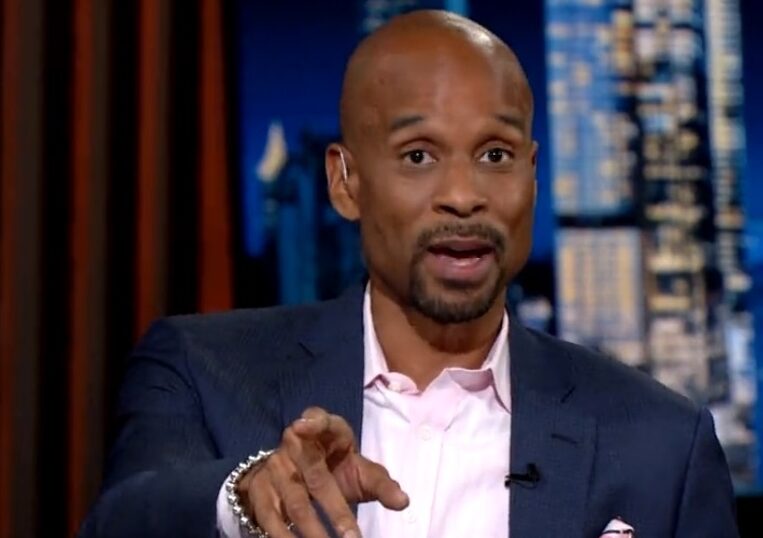Years ago, I wrote about how I’ve grown up with OutKast’s ATLiens. Today, to kick off a series here at BomaniJones.com for Black Music Month, it’s Aquemini.
I’ve never listened to any album more. I’ve already written and erased this post twice because there were so many directions to go in. The original plan was to write about how it ties into my experiences in and affection for Atlanta (or, at least, the Atlanta I used to know). Then I was going to talk about how it relates to the obstacles of my current career track.
But, per usual, the fascination within the LP has everything to do with people. Those on the mic, those who rode in my car while listening to it and are every bit as close to me as Andre and Big Boi are with each other, and those with whom we all struggle to stay together.
It’s about the quest to grow without changing, even though anyone with common sense knows that’s too much to ask. But that’s life, and that’s why Aquemini is so fantastic.
***
::Subscribe to the Bomani & Jones YouTube Channel.
Aquemini was sophisticated but simple, grounded by its topicality but with limitless aspirations. Many hear it and think of the burgeoning separation between Andre and Big Boi, but its glory is in how together they truly were. With their different looks and styles, they somehow managed to be in perfect sync and, always, on topic. It was the collision of all those worlds that made Atlanta great, and it came from a fairly Atlanta-specific perspective of being nouveau riche. Aquemini spoke to the struggle of two men to stay themselves, and to stay together, while climbing toward heights neither could reach alone. It was an LP that spelled out the gray area that tortures anyone moving to a place they never could have truly prepared for — the space between change and growth.
That’s what Aquemini speaks to. Think about the highlights“Return of the ‘G’” is Andre telling us he’s still the same, no matter what we see while Big Boi’s trying to grow up…but will still shoot you. Same with the mind-blowing title track, and verse-for-verse on “Liberation.” Even an impersonal cut like “Chonkyfire” speaks to the same theme, just with the music as the protagonist. Rap music had to grow, but they sure as hell didn’t want it to change. Hell, even Cool Breeze and Backbone stayed on the same theme on “Slump.”
And the sound? Same thing. Rico Wade was too strung out to mastermind Aquemini, leaving Kast to do most of the production themselves. But you still heard the live bass and guitar. Samples were still along for the ride rather than driving the production. But this wasn’t Southern G-Funk like Southerplayalisticadillacmuzik or gloomy like ATLiens. It was all of that and more — “Chonkyfire” and its guitars, “West Savannah” from the Southernplayalistic vaults, the post-apocalyptic chaos of “Da Art of Storytellin’ Pt. 2,” the reggae-infused groove of “Spottieottiedopalicious.” Like my parents’ house, it was five minutes away from everything at every point.
But even with so much commonality, the struggle to stay together is always there. It didn’t make much sense to me when I was 18, and friends just kinda came and went. Now I’m 31. I’m still close with every best friend I ever had. I still roll deep with my best friend from growing up, college, grad school, and since. But I’d damn sure be lying if I said we kick it the same.
::Receive Bomani’s Blog, Videos, and Podcast. Subscribe to The Email Jones.
We grew up. We moved all over the country. Some got married. We went through shit we may never recover from. We’ve seen highs and lows, individually and separately. But we’d all still fight like hell for each other. That’s what love is and, deep down, everything is the same.
Truth be told, nothing’s the same and never will be. We don’t release rap albums together, so there’s never been a reason to fight to keep it together. We just know it is. Or, at the very least, we sure as hell hope so. Now, all we can really do is find the few things we have in common — time each can spare, conversations about our separate lives the other can relate to…anything. You never lose your friends, but friendships themselves are their own beings. They change as you do, even when you don’t notice it.
But one day, you wake up, and you don’t wanna go drinking and spittin’ at chicks in the club anymore. You don’t want to do the married things your friends do, and they couldn’t do the single stuff if they wanted to. You’re at different points, and there’s but so much anyone can do to bring them together. Each tries to fit in with the other, but everyone knows that’s what it is. And no one’s mad. These are just the things that happen.
Jump into a memory, though? It’s all back.
Where we jump on memories, OutKast jumped on beats. And where ATLiens captured boys becoming men, Aquemini showed us men becoming adults settling into the lives they’d live. The friendship would never be the same, but it surely wouldn’t die. They never should, and the real ones never do. They just look and sound different over time.
But if you hold on too tightly to fight change, no one will ever grow. As long as that’s compelling, so shall be Aquemini.
